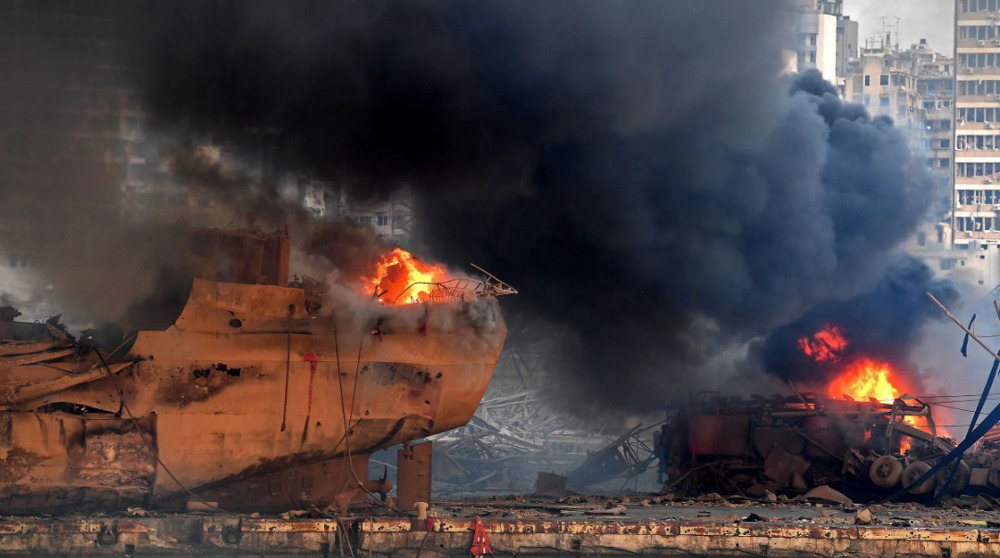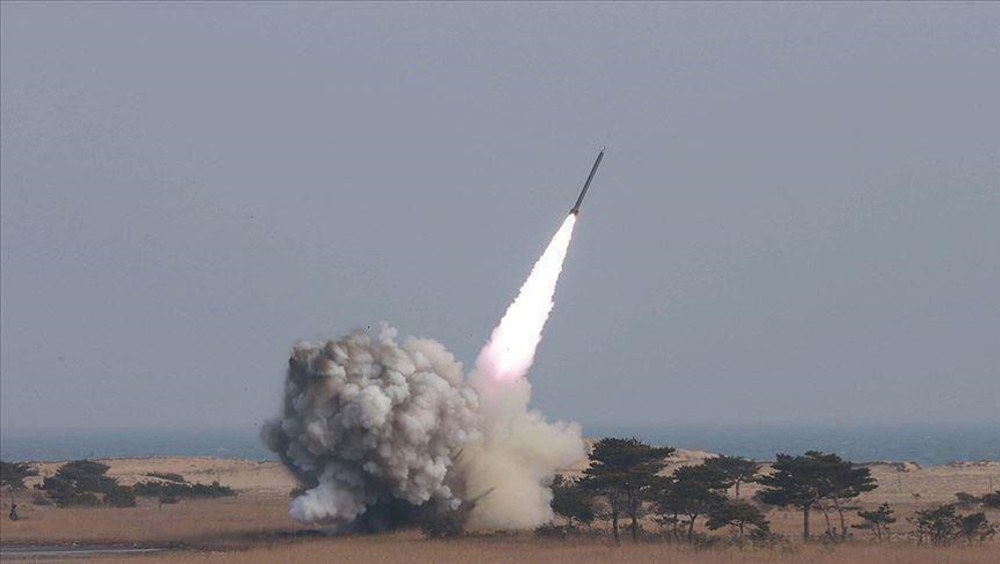A ticking bomb in Yemen: Beirut blast may repeat in Aden
Thousands of tons of ammonium nitrate, a highly explosive chemical compound which recently caused a massive explosion in Beirut, are being stored in the Yemeni port city of Aden by Saudi-Emirati occupation forces, a top official warns.
The governor of Aden governorate in southern Yemen says the chemical compound has been stored in Aden since three years ago without finding any immediate solution for use or any measure to keep citizens and their belongings away from possible danger.
Salam warned that the amount of ammonium nitrate stored in Aden is almost twice the amount that blew up the Lebanese capital of Beirut on Tuesday.
Yemen’s Al Masirah TV quotes Tariq Salam as saying that the chemicals have been confiscated by the Saudi-led coalition forces and stored in the Aden port, but have been abandoned and now endanger the lives of citizens in case of explosion.
“The forces deployed in this port are responsible for storing this dangerous cargo, which is estimated to include 4,900 tons of ammonium nitrate stored at 130 shipping containers,” he warned.
The storage of such a huge ammonium nitrate cargo in Aden port is much more challenging and dangerous than Beirut, as it is being stored close to residential areas, and that Aden is currently a scene of infighting among coalition forces.
The Beirut blast, which killed at least 154 and injured over 5,000 others, was caused by almost 2,700 tons of ammonium nitrate. The explosion turned Beirut into a “disaster city”, and has been described as the second biggest explosion after the atomic bomb that hit Hiroshima, Japan.
The highly explosive material, commonly used in both fertilizer and bombs, had been confiscated by the Lebanese government from the abandoned ship MV Rhosus and stored in the port without proper safety measures for six years.
The blast was detected by the United States Geological Survey as a seismic event of magnitude 3.3, which reached Turkey, Syria, occupied territories, and parts of Europe, and was heard in Cyprus more than 250 km (160 mi) away.
The Lebanese government declared a two-week state of emergency.
Hamas thanks Iran, Resistance Front following achievement of ceasefire in Gaza
'Capitulation': Israeli officials and media concede Gaza defeat as truce unfolds
'Gaza has won': Social media users react to ceasefire with mix of relief, joy
Iran seeks South Korea’s assistance for AI, fiber-optic projects
VIDEO | Iran's 'Eqtedar' (Power) maneuver
Israel hits HTS military target in Syria for 1st time since fall of Assad
VIDEO | Press TV's news headlines
Israel has slaughtered 13,000 students in Gaza, West Bank











 This makes it easy to access the Press TV website
This makes it easy to access the Press TV website